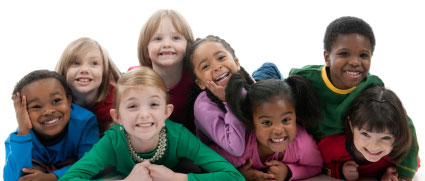
Some children acquire social skills, such as saying “please” and “thank you” and to wait their turn by observational learning. However, children with developmental, learning, and attention issues often experience difficulty developing common social interaction skills by simply observing others. Children who struggle with naturally developing peer interaction skills could benefit from participating in a social skills group.
Social skills involve far more than just the ability to effectively communicate with other people. They’re crucial in helping children develop and maintain friendships, succeed in school and later in life. Parents often have a number of questions about social skills groups. Here are answers to four of the most commonly asked questions that we receive.
What Are Social Skills Groups?
Social skills groups are designed to teach children how to interact appropriately with their peers. Social skills groups assist children with developing and practicing conversational, friendship and problem-solving skills. Social skills groups also help children develop the ability to recognize and effectively control their emotions and understand other people’s perspectives.
How Do Social Skills Groups Work?
Children who participate in social skills groups may experience challenges with starting or maintaining conversations. Whereas, other children may experience difficulty reading and understanding non-verbal social cues. In social skills groups, children participate in a variety of activities designed to help them to learn the skills needed to deal with whatever social challenge they’re facing. Group sessions provide children with a chance to practice various social skills, learn from others, and obtain feedback on how they’re doing in a supportive environment.
What Are the Benefits of Social Skills Groups?
Social skills group help children learn important skills that they’ll use the rest of their lives. This includes learning how to:
● Greet others
● Start a conversation
● Respond to others
● Maintain a conversation
● Share and take turns
● Ask for help
● Manage their emotions
● Recognize and understand the emotions of others
Who can Benefit from Social Skills Groups?
Social skills groups are most beneficial for children who aren’t developing social skills as quickly as their peers. This may include children with ADHD, who can be too active and physical in their play with peers. It may include children with nonverbal learning disabilities, who may have trouble picking up on social cues, like body language, voice tone, and facial expressions. Children with social communication challenges, developmental issues, and other types of learning or behavior issues could benefit from participating in social skills groups.
When searching for a social skills group for your child, it is important to look for a group that is developmentally appropriate and focuses on behavioral interaction and social communication skills.

Yours in Health,
New Horizons Wellness Services13333 SW 68th Pkwy,
Tigard, OR 97223
- https://g.page/newhws
New Horizons Wellness Services provides a true multidisciplinary approach to mental & physical health treatments for children, adults and families.